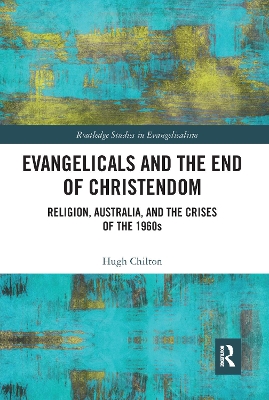Routledge Studies in Evangelicalism
1 total work
Exploring the response of evangelicals to the collapse of ‘Greater Christian Britain’ in Australia in the long 1960s, this book provides a new religious perspective to the end of empire and a fresh national perspective to the end of Christendom.
In the turbulent 1960s, two foundations of the Western world rapidly and unexpectedly collapsed. ‘Christendom’, marked by the dominance of discursive Christianity in public culture, and ‘Greater Britain’, the powerful sentimental and strategic union of Britain and its settler societies, disappeared from the collective mental map with startling speed.
To illuminate these contemporaneous global shifts, this book takes as a case study the response of Australian evangelical Christian leaders to the cultural and religious crises encountered between 1959 and 1979. Far from being a narrow national study, this book places its case studies in the context of the latest North American and European scholarship on secularisation, imperialism and evangelicalism. Drawing on a wide range of archival sources, it examines critical figures such as Billy Graham, Fred Nile and Hans Mol, as well as issues of empire, counter-cultural movements and racial and national identity.
This study will be of particular interest to any scholar of Evangelicalism in the twentieth century. It will also be a useful resource for academics looking into the wider impacts of the decline of Christianity and the British Empire in Western civilisation.
